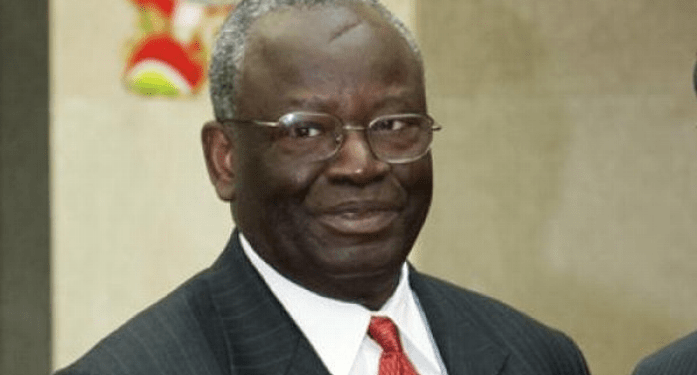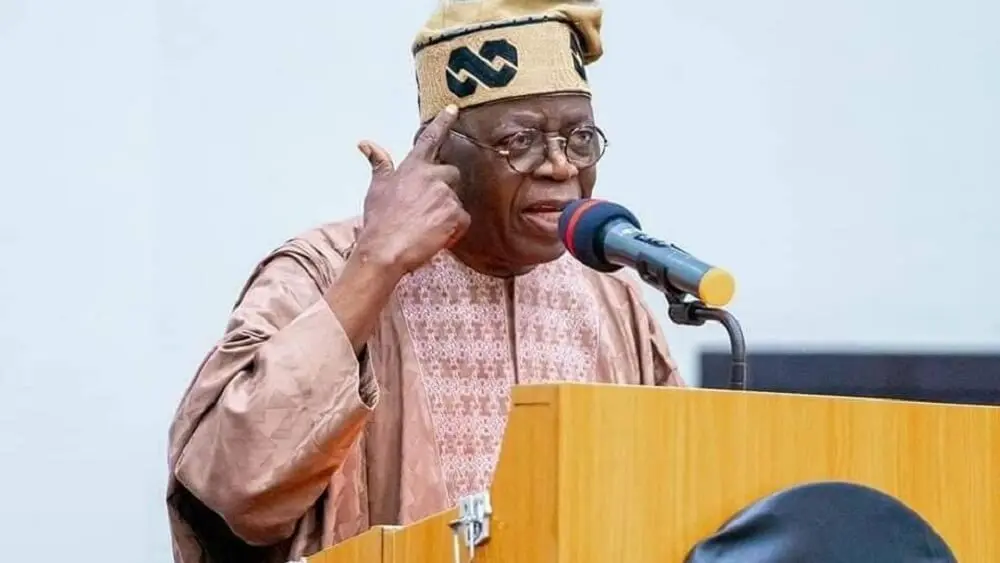Only FG Can Guarantee Financial Autonomy For Judiciary, Says SAN

Mr Sebastian Hon, a Constitutional lawyer and Senior Advocate of Nigeria, (SAN) says that the realization of financial independence of the judiciary lies solely with the Federal Government and not on any state.
Hon made the assertion in a letter to the Chief Justice of Nigeria, entitled: “The JUSUN Strike Action and the Correct Position of the Constitution on Financial Independence for the Judiciary in Nigeria”.
The senior lawyer argued that the ongoing indefinite nationwide strike by judiciary workers could have been averted if the constitution had been properly understood and interpreted by parties.
According to him, the 1999 Constitution, has made far-reaching provisions guaranteeing, in express and unequivocal terms financial independence for both superior and inferior courts in Nigeria.
He said that Section six of the constitution listed the Supreme Court, Court of Appeal, Federal High Court, National Industrial Court, High Court of the Federal Capital Territory (FCT), High Court of a State, Sharia Court of Appeal, FCT, Sharia Court of Appeal of a State, Customary Court of Appeal of FCT and Customary Court of Appeal of a state as courts of superior records.
He maintained that be it the Federal High Court or High Court of a State, they were all creations of the federation and therefore should derive funds from the Consolidated Revenue Fund (CRF).
“Section 318(1) defines federation as the Federal Republic of Nigeria. Clearly, therefore, the framers of the constitution wanted those courts that are wrongly labeled state courts to be courts of the Federal Republic of Nigeria.
“This means they are federal courts, which are, however, established for each state, just for geographical and other administrative reasons,” he said.
He faulted the issuance of Executive Order 10 by President Muhammadu Buhari, which he noted prescribed other budgetary methods for states not contemplated by the constitution.
“The said Executive Order 10 is also in conflict with the express provisions of Sections 6(1), (3)(5) read together with Sections 81(3) and 84(1)(4)(7) of the Constitution.
“It runs counter to Section 121(3) as amended since as against the wrong notion held by Mr President, neither the original text of that subsection nor its amended version has anything to do with superior courts of records, even though located in the various states and acting as state courts.”
He called on the National Judicial Council (NJC) to as a matter of urgency assume responsibility for collecting, collating and fine-tuning budgetary estimates in respect of superior courts of record from the various heads of the courts.
This he said was for onward delivery to the budget office of the federation to be included in the annual budget of the federation.
He also asked the NJC to disburse funds meant for the superior courts of record directly to them once the funds were made available to it.
The News Agency of Nigeria (NAN) reports JUSUN had begun a nationwide strike on April 6, when the union directed all its members across the federation to shut down all courts after the expiration of the 21-day ultimatum earlier given over the failure of the government to implement the law.
However on May 6, after a conciliation meeting between the government negotiating team with JUSUN and the Parliamentary Staff Association of Nigeria (PASAN), the Minister of Labour and Employment, Dr Chris Ngige, expressed optimism that the workers’ union would soon call off the strike.
NAN also reports that President Muhammadu Buhari had, on May 22, 2020, signed into law an Executive Order granting financial autonomy to the legislature and the judiciary across the 36 states of the federation.
Executive Order No. 10 of 2020 made it mandatory for all states to include the allocations of both the legislature and the judiciary in the first-line charge of their budgets.
The order also mandates the accountant general of the federation to deduct from source amount due to the state legislatures and judiciaries from the monthly allocation to each state, for states that refuse to grant such autonomy.
– NAN







